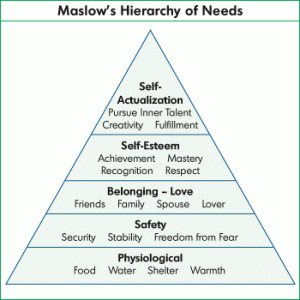Once in a while, I bump into some good-sounding advice from an entrepreneur who built a successful business. For example, I recently reencountered an old post by HubSpot CTO and Founder, Dharmesh Shah, titled Failure Is Not The Worst Outcome, Mediocrity Is (which spurred debate back then). Or, I recently read an interview with an entrepreneur arguing why employees’ after-hours activities are important to a company’s success.
Not surprisingly, most of the business advice one hears or reads comes from people who have been successful in business. Or, specifically in the technology space, from people who have been successful in building technology businesses. But, how helpful is their advice to other people?
For a company to be successful, there needs to be a need and a market. There’s a market for easy file sharing (Dropbox) and for renting apartments for travel (Airbnb); there’s a market for Internet-based point-of-sales systems (Square) and for electronic document signing (DocuSign). In addition to a market, successful companies have a viable product for the market, which is often early in that market.
So, somewhat of a corollary to this statement is that entrepreneurs who are deemed successful (after the fact) usually operated in a big market and had a viable product to offer to that market. In such an environment, funding was also usually readily available. It should therefore not be a surprise that much of the advice given by successful entrepreneurs is applicable to other companies in this situation: with large markets, meaningful products and access to funding (and people).
Because the basic ingredients are already there (funding, market, product), much of the advice given by successful entrepreneurs has to do with company culture, management style, and similar “higher-order” topics.
In many ways, this is similar to the famous Maslow Hierarchy of Needs (“pyramid”): the search for self-actualization and esteem are possible once physiological, security and social needs are addressed.
In much the same way, in the world of technology businesses, many higher-order quests – such as the search for the right culture and internal management style – can only start once the more “physiological” needs are covered: funding, market and product concept. Here’s a quick sketch of what might be a similar pyramid in the technology sector (assuming, for argument’s sake, that the team is a given):
In this context, I cannot avoid thinking about the famous Isareli billionaire Shari Arison, who has promoted a somewhat spiritual approach of looking at one’s “truthful self”. Well, it is clearly easier to search for one’s truthful self when one has a net worth of ~$5b.
Similarly, when smart, great and successful entrepreneurs provide their viewpoint on what it takes to be successful – I always wonder how applicable this advice is to other businesses with more fundamental needs. Can a company with no viable market succeed by implementing such advice? Can a company with no access to funding or new talent leverage such advice?
Interestingly enough, the idea that it’s not always right to learn from successful people was concerning as I was writing this post. Who would you listen to if not the smart, successful, much appreciated people, on some cases informally considered the industry leaders?
Luckily, I found out that other people have looked into this gap. I recently read Ben Horowitz’s The Hard Things about Hard Things, and noticed a similar observation. Ben argues at length that there’s a big difference between “peacetime” leadership and “wartime” leadership. The former focuses on turning a potential success into a bigger success (and requires one set of approaches), whereas the other focuses on surviving in a tough situation – such as aggressive competition, lack of funding, lack of clarity around potential product direction (and requires another set of approaches). While Ben’s dichotomy is perhaps over-simplistic (I would argue that there’s a lot of middle ground), Ben outlines at length why different approaches—and oftentimes different people—are required for each situation.
So, it appears like business advice is—like anything else—context specific. “Users” of such advice need to map the context of the advice (and the person giving the advice) and assess whether it’s meaningful in their own context rather than rely solely on the “pedigree” of the person giving the advice.
That that I expressed my viewpoint, I can only recommend, for what it’s worth, that you take it with a grain of salt.


